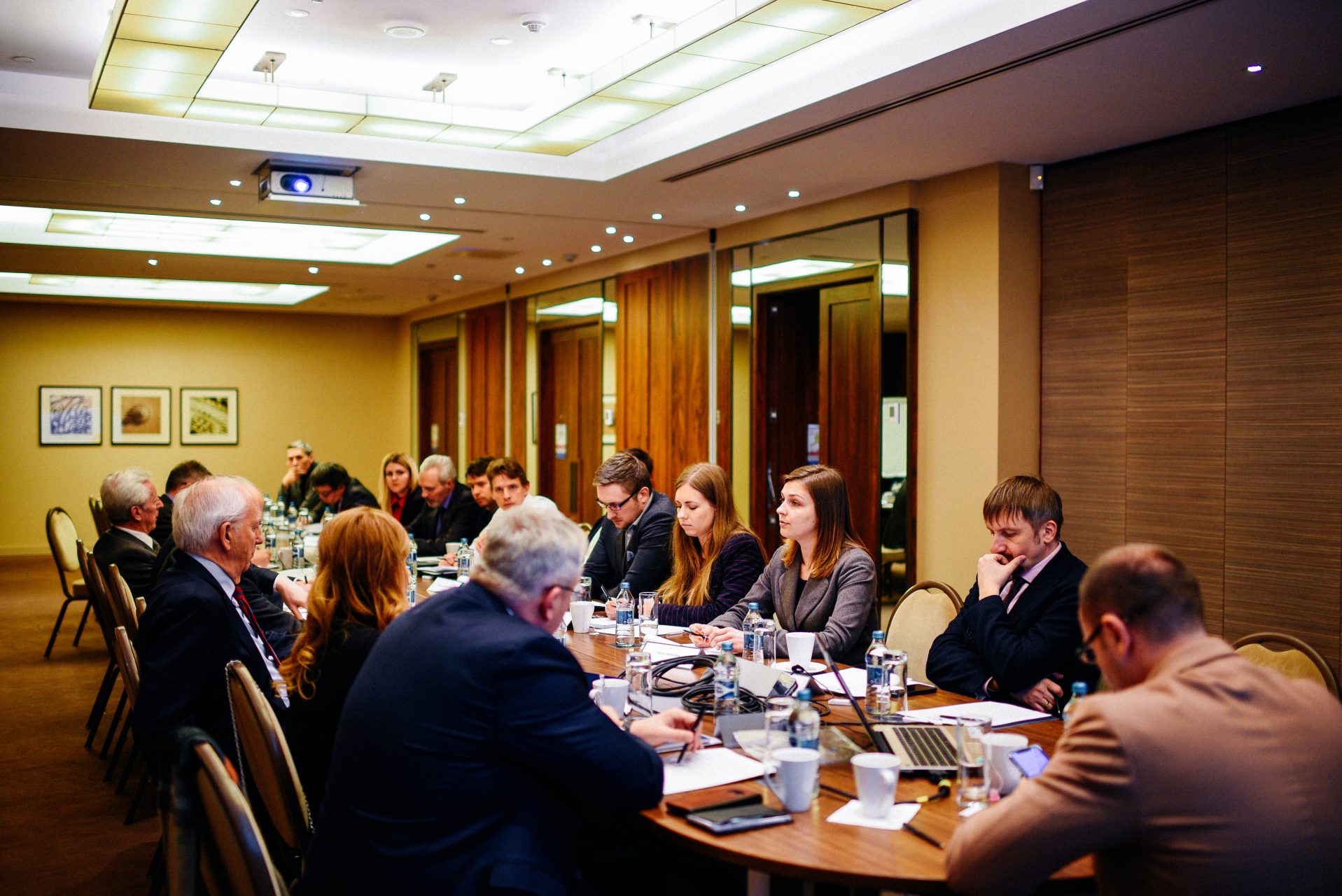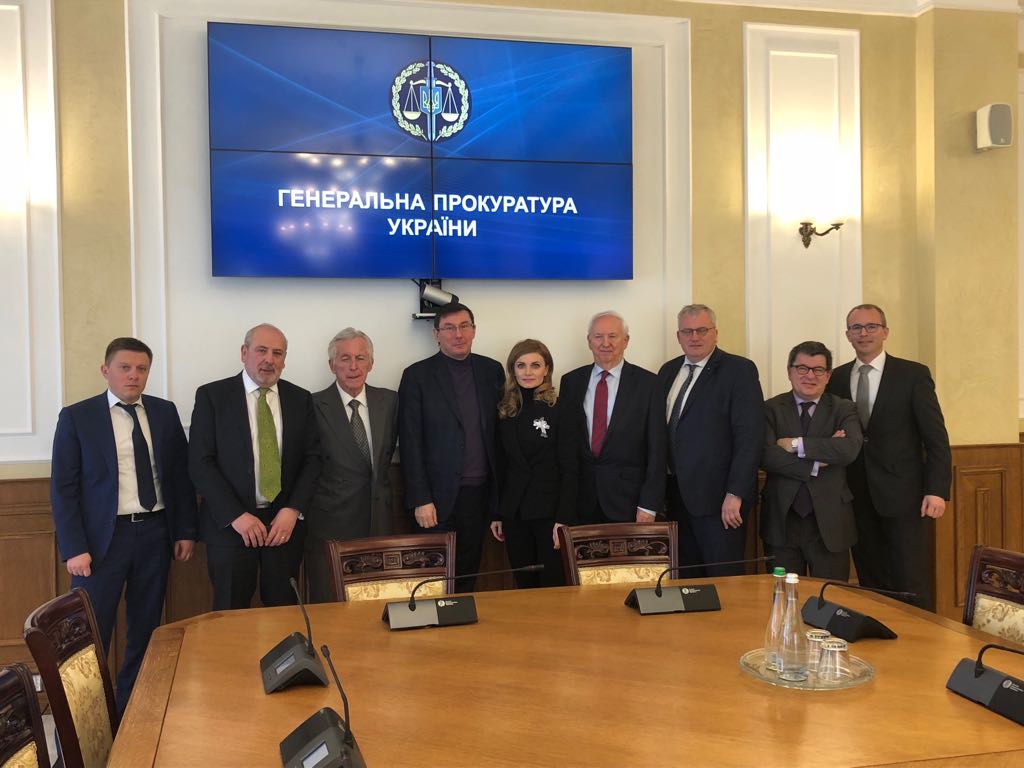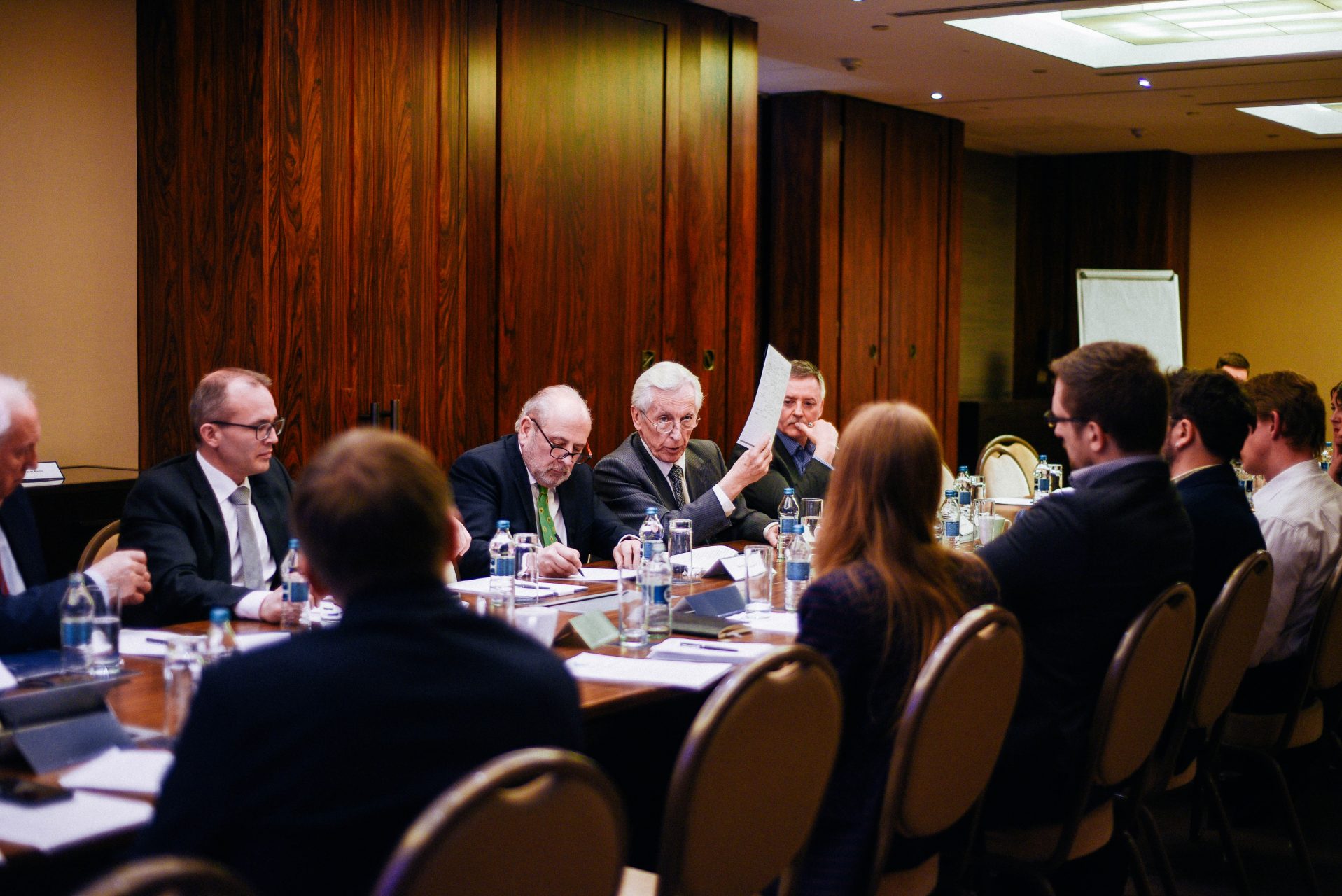The Ukrainian European Perspective (UEP) held a full day of high-level meetings in Kyiv, Ukraine as part of its new programme of supporting and lobbying on behalf of Ukraine’s integration into Europe. UEP was established in the year 2011 to support all-round reforms leading to the Europeanisation of Ukraine.

The team that visited Kyiv on 18-20 March included President of the European Economic Senate Dr. Ingo Friedrich, Chairman of Global Financial Integrity and Barrister Lord Daniel Brennan QC, Vice President of Bavarian Taxpayers Association Michael Ernst Jager, Head of the Liaison Office of the European Parliament in Munich and Lecturer on European Affairs at the Technische Hochschule Nuremberg and former Head of Office of the former President of the European Parliament Tobias Winkler, international expert on terrorism and police reform Charles Mitchell, UEP’s – EU – Ukrainian Liaison Director Michael Burchill, SAIS and Department of Political Science “National University” Kyiv Mohyla Academy Dr. Taras Kuzio, and the team was headed by Director of UEP Marianna Danyliv.

The first meeting of the day was with General Prosecutor Yuriy Lutsenko who gave the UEP nearly two hours of his time. Prosecutor Lutsenko provided extensive inside information about two areas important to Ukraine’s Europeanisation and integration into Europe.
The first area was the extensive reforms undertaken in the field of law enforcement that pertain to Ukraine’s fight against corruption and the creation of a rule of law-based state. Under Prosecutor Lutsenko the General Prosecutor’s Office (GPO) has undergone structural reforms and the number of people employed has been reduced by a third. New institutions have been established with the support of Ukraine’s active civil society and international organisations EU and IMF. These include the National Anti-Corruption Bureau which investigates high-level corruption and National Agency on the Prevention of Corruption which analyses state officials e-declarations of their incomes and assets. The Soviet Militisiya has been transformed into a European Politsiya.
Prosecutor Lutsenko highlighted the extensive success of fighting corruption in three areas. The first was the transformation of the state gas company Naftohaz Ukrainy from a source of corruption for presidents and a drain on the state budget to the biggest tax payer into the state budget. The second is an end to VAT fraud which previously accounted for a third of VAT refund claims. The third is the return of billions of dollars to the Ukrainian budget that had been stolen by former President Viktor Yanukovych’s kleptocratic regime. Prosecutor Lutsenko said that he supported further efforts to fight corruption in customs clearance and by privatising state enterprises which were a drain on government subsidies.
The second factor related to problems surrounding misinformed perceptions of Ukraine promoted by some of Ukraine’s civil society, so-called “opposition” politicians and some Western observers. Prosecutor Lutsenko described this as a repeated comment of “Nothing Has Been Done” since 2014 which he believed was wrong. While there could be always debate as to if the glass is half full or half empty, it would be very wrong to claim that there have been no reforms, changes and progress since the Euromaidan. The last four years has been the most intensive pursuit of reforms of any time since Ukraine became independent in 1991.

Following a working lunch with Ukrainian parliamentary deputies, the UEP group met with the deputy head of the Security Service of Ukraine (SBU) and head of the Department to Combat Corruption and Organised Crime Pavlo Demchyna. The SBU, it was explained to the group, are a vitally important structure in the fight on two fronts that Ukraine is facing; domestically to reduce the scourge of corruption and externally to combat Russian military aggression against Ukraine.
The final official meeting of the day was with Thomas Frellensen, Minister, Deputy Head of Delegation, Delegation of the European Union to Ukraine who described the various ways that since the signing of the Ukraine-EU Association Agreement in 2014 the EU has become more engaged in Ukraine’s reforms. The EU sees much progress in Ukraine but is concerned at some backsliding in difficult areas such as fighting high-level corruption. Since the Euromaidan Revolution, Ukraine has signed an Association Agreement and the Deep and Comprehensive Free Trade Agreement (DCFTA) within the realm of the Eastern Partnership and agreed to a visa free regime for Ukrainians. The latter is already having a major impact in permitting a growth of young people travelling to EU member states. Ukrainians now flock to Poland to work, while shunning Russia and last year, remittances from Poland totalled $3.1 billion, a 57% jump over 2016. By contrast, remittances from Russia fell by 6% to $1.3 billion, less than half the Polish level. Beyond Poland, remittances from other EU countries grew by 14% last year to $2.6 billion. In three years, the EU has replaced Russia as Ukraine’s top trading partner, accounting last year for 41% of trade bolstered by a new free trade pact, EU-Ukraine trade increased by 26.7% last year.

In the evening, the UEP group met with representatives of Ukraine’s vibrant and influential civil society. Following the Euromaidan Revolution, Ukrainian civil society continued their lobbying and educational activities and have acted as an important partner with Western governments and the EU to maintain pressure on the Ukrainian government, parliament and president to continue with the path of reforms and Europeanisation of Ukraine.
Representatives of civil society provided summaries of their extensive and progressive activities in support of reforms and Ukraine’s Europeanisation to the UEP group. They included Anastasiya Kozlovtseva, Andriy Borovyk and Olena Halushka from the well-known Transparency International and Anti-Corruption Action Centre which monitor corruption, Mykola Havronyuk of the Centre of Policy and Legal Reform, Ihor Koziy of the Institute for Euro-Atlantic Cooperation, and Roman Vybranovskiy of the Ukraine Crisis Media Centre, Vyacheslav Likhachev from the Vostok SOS NGO, Yuriy Tretyak from the U-LEAD with Europe, Iyevhen Dukhovych from GiZ and Lesya Klyarovska from the Legal Hundred NGO. Vasyl Myroshnychenko, the Public Relations Director of UEP, was leading the session.


